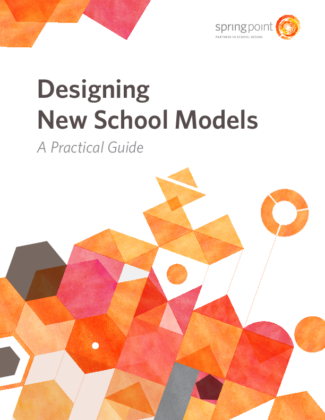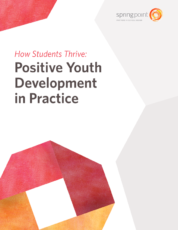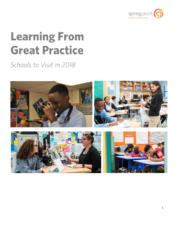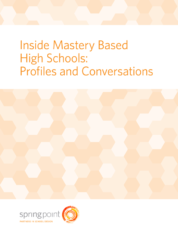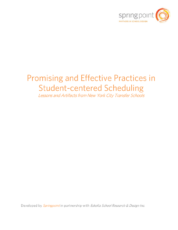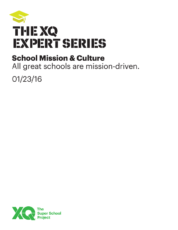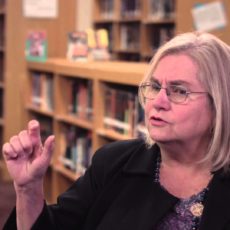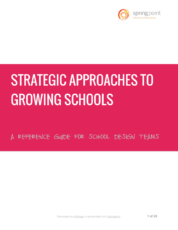Designing New School Models A Practical Guide
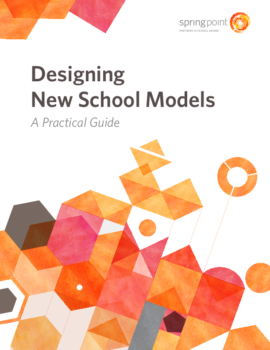
Our landmark design guide outlines three key phases of the Springpoint school design process: Understand, Design, and Build. An introduction to the process, the guide includes several templates for artifacts and other key documents that can guide practitioners and communities in their school design journey.
The guide is intended to inspire educators and budding school designers to craft innovative ideas, explore student-centered approaches, and realize strong systems that can give students the school experiences they deserve.
